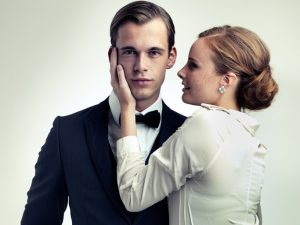'Pretty People Always Win': Beauty Bias In The Workplace
It's a reality; is it against the law?
 Don’t think that your looks affect your job prospects, huh? Merit is all that counts – and you’ve got that covered, right?
Don’t think that your looks affect your job prospects, huh? Merit is all that counts – and you’ve got that covered, right?
So why, then, did Mr. and Ms. America get those great jobs – and not you?
Could it be … “beauty bias?”

Mitigating M&A Cyber Risk: Pre- & Post-Acquisition Due Diligence
Weight bias was my topic in an earlier ATL article, and I asked, “Is there a bias in the workplace against people who are ‘overweight’? Is weight a protected class under the Civil Rights laws?”
I promised then to take a similar look at “beauty bias,” also known as “appearance bias” or “lookism.”
What Is “Beauty Bias?”
It is just as it sounds – workplace bias based upon appearance.
Sponsored

New Report - Are Small Firms Achieving Their Legal Tech Goals?

Mitigating M&A Cyber Risk: Pre- & Post-Acquisition Due Diligence

Attention Buyer: Not All Legal AI Models Are Created Equal

How To Maximize Productivity With Westlaw Precision With CoCounsel

“Lookism” may be defined as “discriminatory treatment toward physically unattractive people; mainly in the workplace but also in social settings. While not classified in the same way as racial, cultural, sexual discrimination, ‘lookism’ is widespread and affects how people are perceived as well as affecting their opportunities in terms of relationships, job opportunities, etc.”
As one psychologist said: “we face a world where lookism is one of the most pervasive but denied prejudices.”
Indeed, a number of companies have maintained a “look policy” (some found illegal, usually when involving religious dress, and most under fire), one of which, as reported in The Guardian, required that all employees appear and dress with a “natural, classic American style consistent with the company’s brand and ‘look great while exhibiting individuality.’ Workers must wear a ‘clean, natural, classic hairstyle’ and have nails which extend ‘no more than a quarter inch beyond the tip of the finger.’”
In fact, “From the late 1860s until the 1970s, several American cities had ugly laws that deemed it illegal for persons who were ‘unsightly’ or ‘unseemly to appear in public.”
Times sure have changed, huh?
Sponsored

How To Maximize Productivity With Westlaw Precision With CoCounsel


The Ethical use of Generative AI

“Beauty Is Goodness”
In one eye-opening paper, Professor Comila Shahani-Denning reviewed numerous studies and wrote of the “beauty is goodness” stereotype in cinema, which portrayed “attractive characters … more favorably than unattractive characters.” That is not limited to the cinema – “In the area of employment decision making, attractiveness also influences interviewers’ judgments of job applicants.”
(Professor Shahani-Denning also noted that “Some evidence suggests that when the position being applied for is traditionally filled by a male, the reverse of the typical bias is found for female applicants: Attractive females are evaluated less favorably than unattractive females.” Read also this recent ATL article, by my fellow columnist Jill Switzer, about women in law: “It’s how we dress, our hairstyles, our figures and other characteristics that don’t hamper men at all, but can be the kiss of death for women lawyers when there are women jurors and/or if it’s a high-profile case.”)
A famous Stanford law professor, Deborah Rhode, authored one of the leading works on beauty bias, and noted that a large percentage of overweight people were discriminated against in the workplace, and that short men frequently get “the short end of the stick.” And an article in Newsweek claimed that “handsome men earn, on average, 5 percent more than their less-attractive counterparts (good-looking women earn 4 percent more),” estimated by economist Daniel Hamermesh to total $230,000 over a working life.
Good grief!
A Time article commented that “Women with above average looks reportedly made 8% more while below-average looking women had a 4% penalization. While an attractive man earned just 4% more, men who fell below average on the looks scale were docked 13%.”
I guess it is not really surprising then that a phone survey found that almost three-quarters of working women believe that “appearance and youthful looks” are important in hiring, promotion, and rainmaking, and almost one in five either already had a cosmetic procedure or would consider doing so because of this.
“Being Dishonest About Ugliness”
If you still think that looks don’t matter, you would be as wrong now as when you had this drummed into you as a child.
The Time piece above cheerily chimed in that “everything that your mother told you growing up is a lie because the pretty people always win.” (“You was my Mother, you shoulda looked out for me a little bit!”)
In a New York Times essay entitled “Being Dishonest About Ugliness,” Julia Baird wrote that “Adults often tangle themselves in knots when discussing physical appearance with children. We try to iron out differences by insisting they don’t matter, attribute a greater moral fortitude to the plain or leap in defensively when someone is described as not conventionally attractive, or — worse — ugly or fat.”
Maybe we would have been better off now if we were told the truth as children – she asked: “how is a child to grapple with the savage social hierarchy of ‘lookism’ that usually begins in the playground, if adults are so clumsy about it? The advantage of beauty has been long established in social science; we know now that it’s not just employers, teachers, lovers and voters who favor the aesthetically gifted, but parents, too.”
Perhaps a comment in Psychology Today put it best, “We know that attractive adults and children are judged to be more intellectually competent, emotionally adjusted and socially appealing.”
Is It Against The Law?
There is nothing in Title VII that prohibits beauty bias per se, as long as there is no “disparate impact” on, for example, religious beliefs or disability, which require a certain appearance, grooming, dress or hairstyle. Think religion-required beards or tattoos, or missing limbs or baldness as a result of cancer treatment.
And to my knowledge, only a few jurisdictions — such as Michigan; the District of Columbia; Santa Cruz, California; Madison, Wisconsin; Urbana, Ilinois; Howard County, Maryland; and San Francisco — have laws that protect against appearance discrimination.
Takeaway
As one lawyer put it to me, “If you want to brand your business, you can prefer the better-looking.”
Well, that’s the way of the world – at least as it stands now. Harder to change attitudes than it is to change the law!
Earlier: Attractive Lawyers Get Paid More
Are Attractive People Better Lawyers? An ATL Debate
 Richard B. Cohen has litigated and arbitrated complex business and employment disputes for almost 40 years, and is a partner in the NYC office of the national “cloud” law firm FisherBroyles. He is the creator and author of his firm’s Employment Discrimination blog, and received an award from the American Bar Association for his blog posts. You can reach him at [email protected] and follow him on Twitter at @richard09535496.
Richard B. Cohen has litigated and arbitrated complex business and employment disputes for almost 40 years, and is a partner in the NYC office of the national “cloud” law firm FisherBroyles. He is the creator and author of his firm’s Employment Discrimination blog, and received an award from the American Bar Association for his blog posts. You can reach him at [email protected] and follow him on Twitter at @richard09535496.







